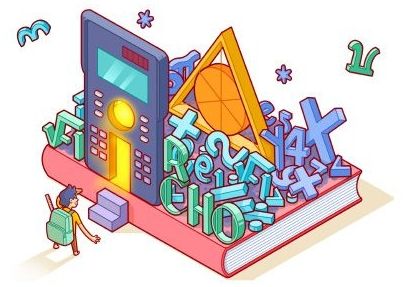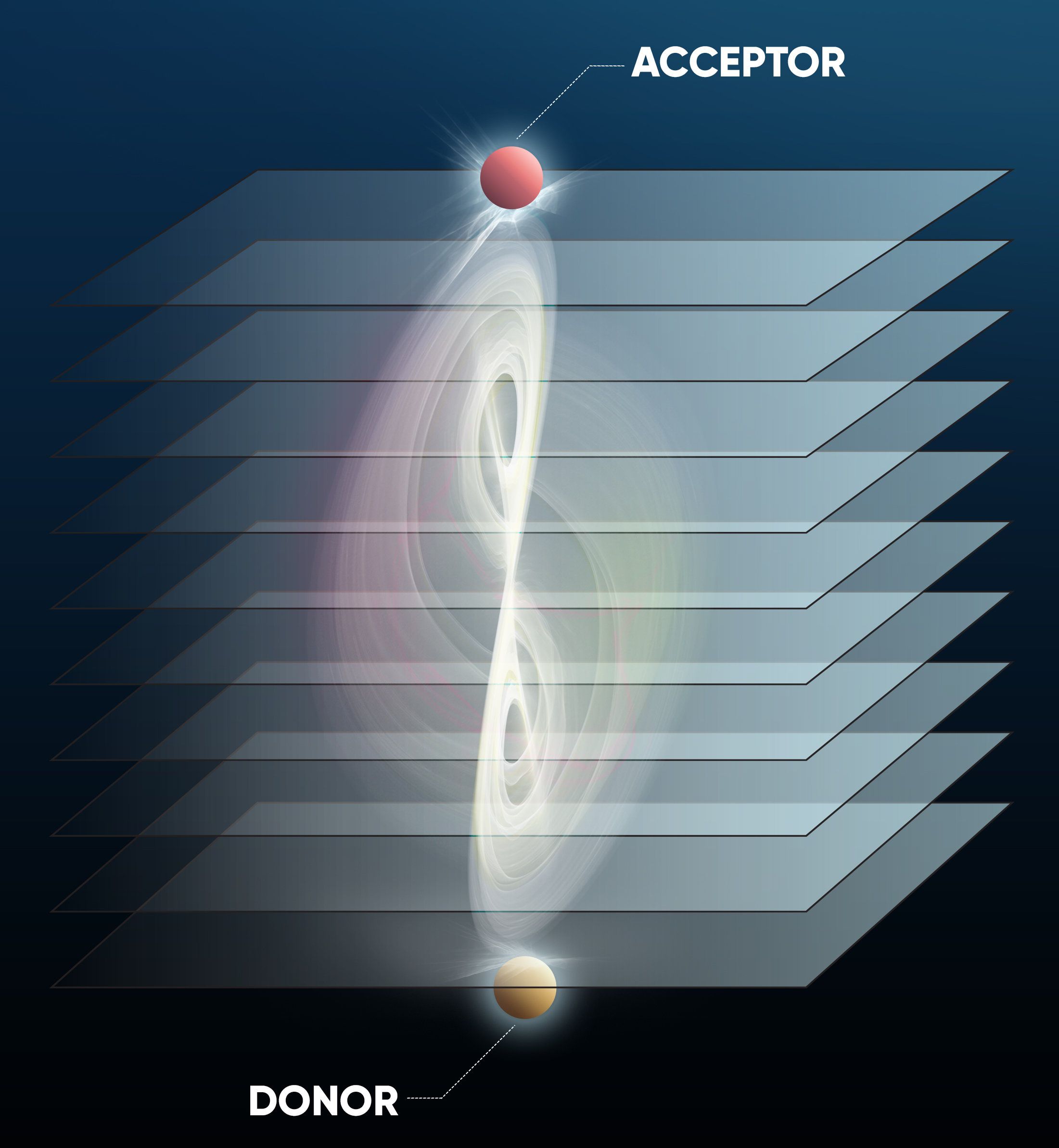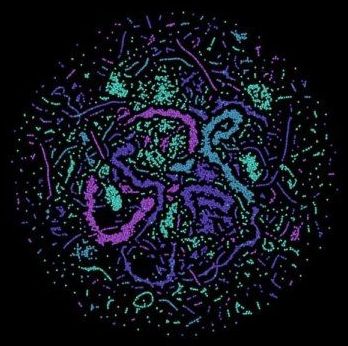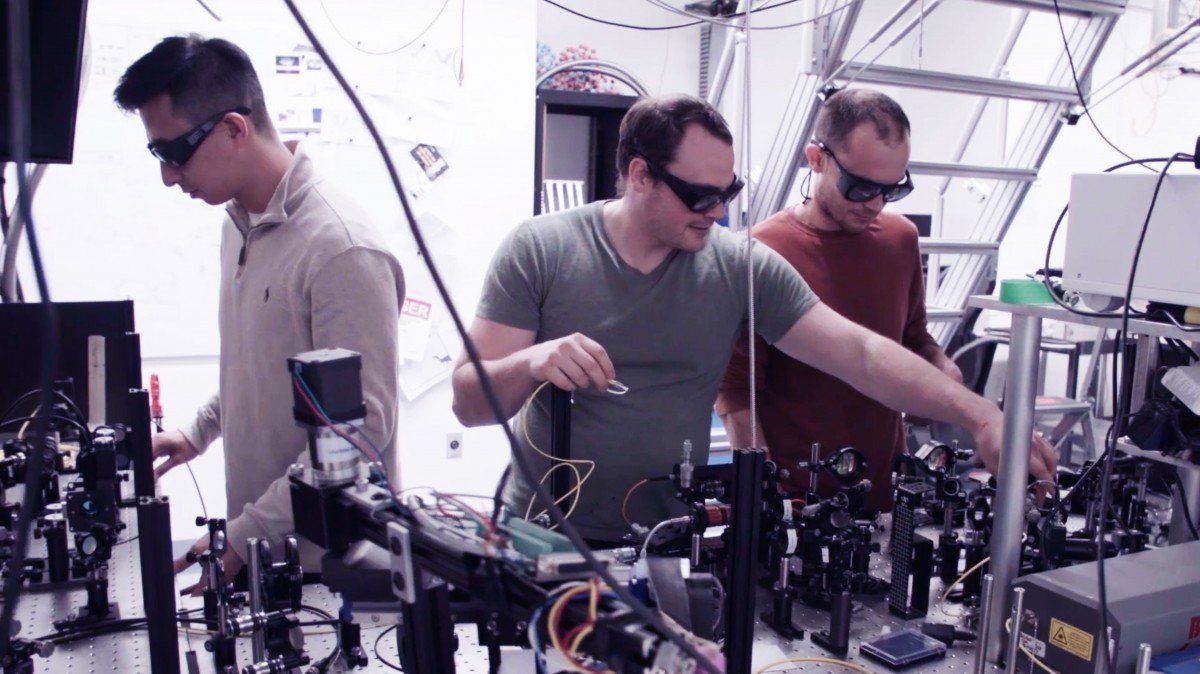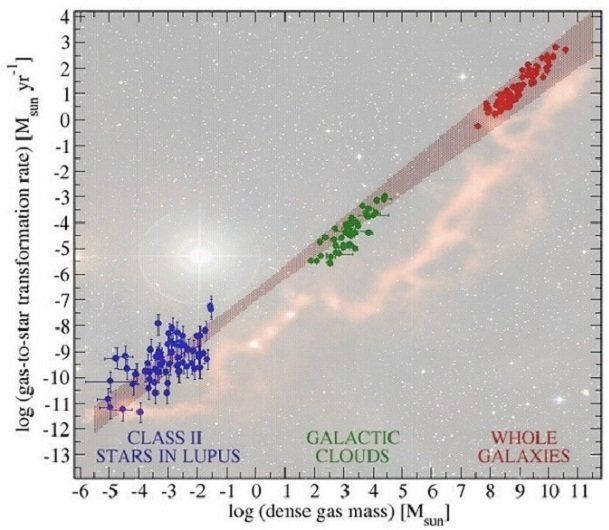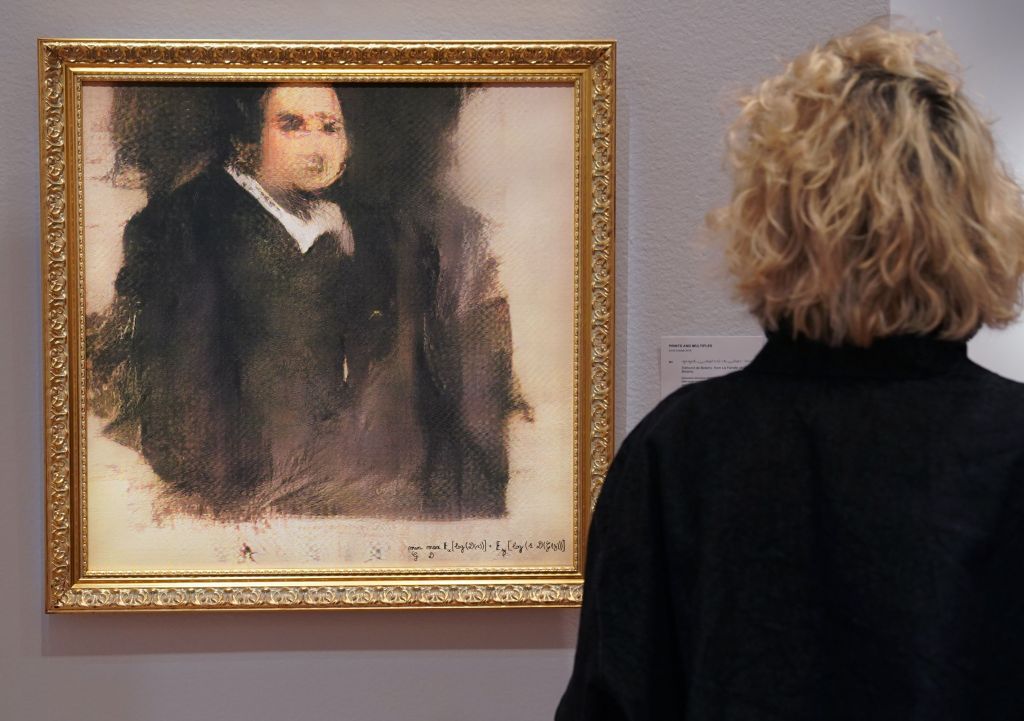Page 9427
Oct 25, 2018
Team study breaks Forster resonant energy transfer (FRET) distance limit
Posted by Genevieve Klien in categories: biological, innovation
Using engineered nanocomposite structures called metamaterials, a City College of New York-led research team reports the ability to measure a significant increase in the energy transfer between molecules. Reported in the journal ACS Photonics, this breakthrough breaks the F\xF6rster resonance energy transfer (FRET) distance limit of ~10–20 nanometers, and leads to the possibility of measuring larger molecular assemblies.
And since FRET is a staple technique in many biological and biophysical fields, this new development could benefit pharmaceuticals, for instance.
“Energy transfer between molecules plays a central role in phenomena such as photosynthesis and is also used as a spectroscopic ruler for identifying structural changes of molecules,” said Vinod Menon, professor of physics in City College’s Division of Science. “However, the process of energy transfer is usually limited in the distance over which it occurs, typically reaching 10 to 20 nm.”
Oct 25, 2018
Regenerage — Spinal Cord Regeneration — Venga la Alegria — TV Azteca — Bioquark Inc.
Posted by Ira S. Pastor in categories: bioengineering, biotech/medical, chemistry, disruptive technology, DNA, futurism, genetics, health, nanotechnology, neuroscience
 Wonderful to see the continuing progress of Mr. Omar Flores, with the support of his lovely wife, actress Mayra Sierra, today on the Venga la Alegria (VLA) show on TV Azteca (http://www.aztecauno.com/vengalaalegria) — The importance of an integrated approach to curing spinal cord injury including family, physical therapists, and the medical team at Regenerage (https://regenerage.clinic/)
Wonderful to see the continuing progress of Mr. Omar Flores, with the support of his lovely wife, actress Mayra Sierra, today on the Venga la Alegria (VLA) show on TV Azteca (http://www.aztecauno.com/vengalaalegria) — The importance of an integrated approach to curing spinal cord injury including family, physical therapists, and the medical team at Regenerage (https://regenerage.clinic/)
Oct 25, 2018
You don’t understand Bitcoin because you think money is real
Posted by Philip Raymond in categories: bitcoin, cryptocurrencies, economics, government, internet
 Maria Bustillos is founder of the blockchain supported publication, Popula. I stole the title of this post from her essay at Medium.com (linked below).* I hope that Maria considers it a tribute rather than title-plagiarism. Her article is blocked by a pay wall, so allow me to explain a concept that confounds even a Nobel Prize winning economist. My take on the issue is somewhat different than Ms. Bustillos.
Maria Bustillos is founder of the blockchain supported publication, Popula. I stole the title of this post from her essay at Medium.com (linked below).* I hope that Maria considers it a tribute rather than title-plagiarism. Her article is blocked by a pay wall, so allow me to explain a concept that confounds even a Nobel Prize winning economist. My take on the issue is somewhat different than Ms. Bustillos.
The difficulty understanding or appreciating Bitcoin boils down to a misconception that the dollar is backed by something more tangible, such as gold, guns or the promise of redemption. Not only is this an illusion, but Bitcoin is backed by something far more tangible, intrinsic and durable.
The illusion that “real” value emanates from government coupled with a robust consumer economy has been woven into our DNA for millennia. But, the value we attribute to a Dollar, Euro, or Yuan is a result of conditioning rather than any intrinsic value. That same conditioning has led us to believe that there is something sane and inherent in a nation that controls its money supply and its monetary policy.
Most public works projects—power generation, space ships, or the telephone network—were controlled by government in the past. If not, they were regulated as a licensed monopoly. This creates a choke point, a lack of competition, and a gaping opportunity for inefficiency, mismanagement or graft. It defies a free market economy and it concentrates power in the hands of politicians. But, at one time, it seemed necessary.
Continue reading “You don’t understand Bitcoin because you think money is real” »
Oct 25, 2018
Artificial intelligence controls quantum computers
Posted by Genevieve Klien in categories: quantum physics, robotics/AI
Quantum computers could solve complex tasks that are beyond the capabilities of conventional computers. However, the quantum states are extremely sensitive to constant interference from their environment. The plan is to combat this using active protection based on quantum error correction. Florian Marquardt, Director at the Max Planck Institute for the Science of Light, and his team have now presented a quantum error correction system that is capable of learning thanks to artificial intelligence.
Oct 25, 2018
The US pushes to build unhackable quantum networks
Posted by Genevieve Klien in categories: cybercrime/malcode, internet, quantum physics
The fiber-optic cables carrying data across the internet are vulnerable to hacking. Two US initiatives aim to fix that by creating super-secure quantum transmissions.
Oct 25, 2018
Robbed of Nobel, Female Physicist Blazed Her Own Amazing Trail: Watch Her Speak Tonight
Posted by Genevieve Klien in categories: physics, space
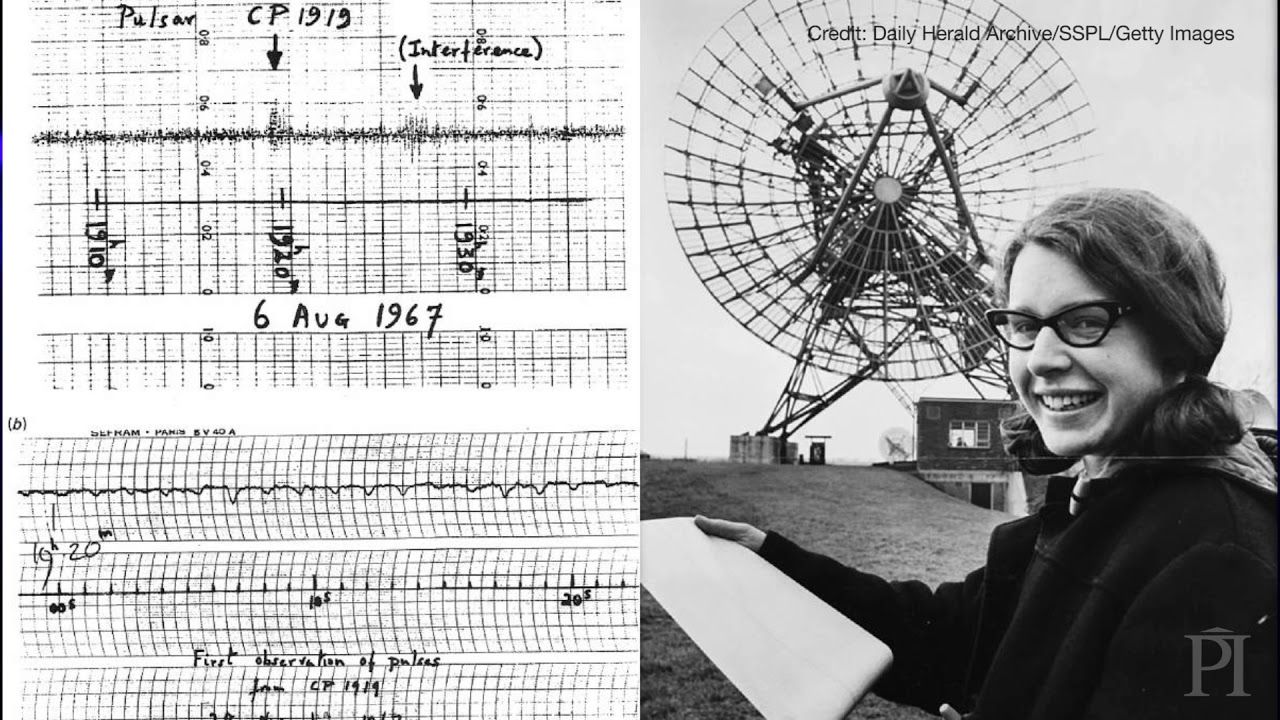
Jocelyn Bell Burnell, astrophysicist extraordinaire who helped discover radio pulsars while a graduate student in 1967 (though only her adviser was recognized when the discovery snagged a Nobel Prize in physics in 1974), is getting long-overdue recognition.
Bell Burnell, now a visiting professor of astrophysics at the University of Oxford and chancellor of Scotland’s University of Dundee, was awarded the weighty Breakthrough Prize in physics in September for her pulsar discovery and science leadership.
Oct 25, 2018
Blood pressure pills could raise risk of lung cancer, research finds
Posted by Genevieve Klien in category: biotech/medical

Other common names for the drugs include captopril, cilazapril and enalapri.
They work by reducing the activity of the angiotensin-converting enzyme, or ACE for short. By blocking this enzyme, the blood vessels relax and widen and blood pressure is lowered.
Continue reading “Blood pressure pills could raise risk of lung cancer, research finds” »
Oct 25, 2018
Astronomers find a universal correlation that could unify the study of star formation
Posted by Genevieve Klien in category: space
Star formation is one of the most important research fields in astrophysics. This process, in which gravitational instabilities cause the collapse of gas to form more compact structures and finally stars, encompasses a broad range of physical scales. These include star-forming galaxies on the large scale, individual young stars with envelopes and circumstellar disks on the smaller scale, and intermediate scales that include giant molecular clouds and protostellar cores.
A “portrait” that is the first piece of artificial-intelligence art sold by a major auction house shattered estimates, selling for 45 times what was expected.
“Portrait of Edmond de Belamy” was sold Thursday at Christies in New York for $432,500. It had been expected to go for $7,000 to $10,000. The buyer was not revealed.
The painting is one of 11 portraits of a fictional family created so far by the Paris-based art collective Obvious.
